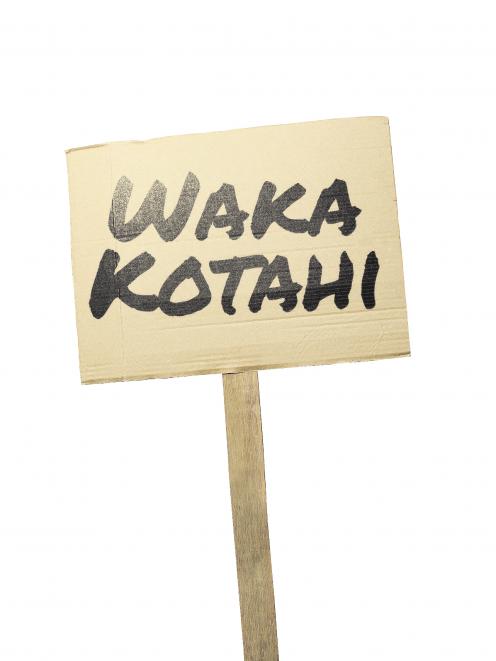
Regardless, I have always appreciated the ease of a name like Megan. Unlike my daughter, who has a Māori name that exhausts her sometimes, and she has shortened it, so people don’t completely butcher the pronunciation. She was also utterly frustrated and confused at a young age with people asking her what her name meant. For some reason Māori names must have a meaning and a suitable translation ... I have never had such problems with a plain Pākehā name.
However, in te ao Māori, the process of naming, the right to name and the name itself are incredibly important.
In our tribe there are countless examples of the importance of naming. One of our ancestors discovered his wife’s infidelity by reciting the names of the men in the village as she was in the throes of childbirth. She gave birth to the child as he called out the name of the father and the boy was named accordingly — Te Hikutawatawa-o-te-Raki. His story is epic and has been retold throughout the generations, we descend from him.
Don’t think that Pākehā didn’t once give the importance of naming the same weight as Māori, they did, but there is arguably a disconnect to those historical signposts. A classic example is that of Rumpelstiltskin. That story accentuates the history and belief that to give or know the real name of a being gives a person power over it. Essentially, in the Māori world, knowing a name, a whakapapa, a person, means you are indeed knowledgeable and with that comes a responsibility.

Naming children is important. My great grandfather was named after the immoral jailing of the Taranaki people. Māori name children after events, often tragic events so as never to forget. Māori veterans named their children after battles such as Cassino and Alamein, this imbued the child with the mana of the many Māori men who shed their blood and fell on the battlefield. We shall not forget them.
My husband’s name was one of an eponymous ancestor, kind of like being named Jesus Christ on a low-key tribal scale. He really did do his best to live up to the name and promised himself that he would learn the story of every ancestor that lay between him and the original namesake, and he did. In saying that it wasn’t a simple name to carry, it was burdensome at times, but ultimately it worked in his favour.
There are names of places that lie under the Scottish place names in Otago. They are old place names that tell a whakapapa of the land and speak to us like the worn veins of an elderly hand. The Scottish felt it important to name streets and places with their own names from home, which I get, it makes sense, but it does mean that with that comes loss. Those Māori place names are ours and need to be honoured, spoken, seen and heard, resonating with people, all people.
Naming buildings and organisations with Māori names has been taken up with gusto. This isn’t a new phenomenon to Māori. In my iwi, we have a very strong history of naming houses after battles, events or men and women. We name our houses, and they embody that ancestor or the intent of the event.
Our hapū here in Dunedin have been naming more public buildings over the past few years and that hasn’t come without a few fisty cuffs between us! Names are contentious and do we even want to give an important name to a public building? Mostly we don’t, but in the name of revitalisation and seeing ourselves back in the Dunedin city, we do it — kia ora ai te reo me te whakapapa. (And no, I am not going to translate that.)
Although the government of the day hasn’t given a formal directive, they are stating that the primary name of departments and the likes will be in English, except those specifically related to Māori. Whether we like Waka Kotahi or not, or whether Uncle Winnie’s criticism of the grammar is right or not, the horse has bolted. Māori and Pākehā have become familiar with Māori names, they have become household terms. This directive has stirred a fire in the belly of not only Māori but Pākehā allies too. My friend wisely suggested that the swelling movement of protest and disdain be named Waka Kotahi — one vehicle — all heading in one direction, powerful and purposeful. Ake ake ake!












